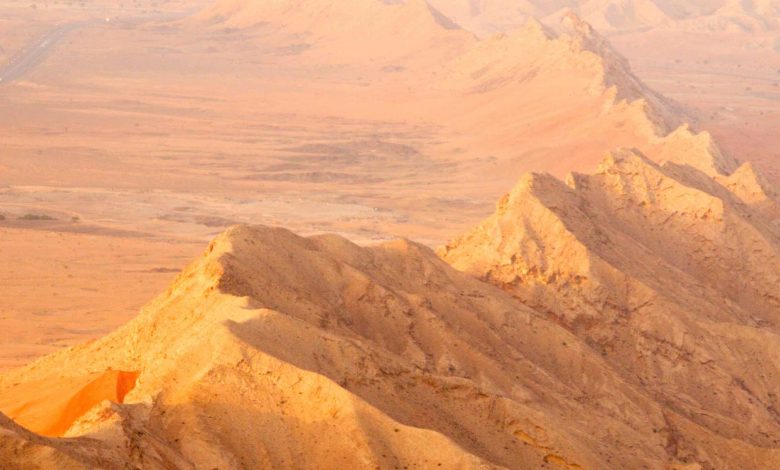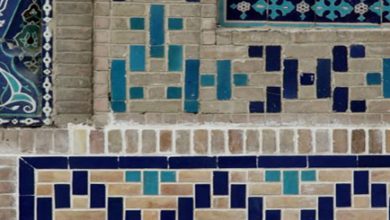MUSA AS – PART 5

When Musa AS returned and saw their behaviour with his own eyes, he was so livid that he threw down the Tablets containing the teachings of the Torah onto the ground. Musa AS also vented his anger to his brother. Grabbing him by the beard, he asked why he did not prevent them from going astray. Harun AS replied:
“O son of my mother! Seize (me) not by my beard, nor by my head! Verily, I feared lest you should say: ‘You have caused a division among the Children of Israel, and you have not respected my word!’ ” (Al Qur’an 20:94).
However, to understand Musa’s AS fury, we have to appreciate a fundamental principle in Islam: that loyalty to Allah always overrides any loyalty to family.
As for Al Samiri, his excuse was:
“I saw what they saw not, so I took a handful (of dust) from the hoof print of the messenger [Jibrael’s (Gabriel) horse] and threw it [into the fire in which were put the ornaments of the Pharaoh’s people, or into the calf]. Thus my inner-self suggested to me.” (Al Qur’an 20:96)
Musa AS cursed Al Samiri that no one would touch him and that he would be alone for the rest of his life. All supplications of Prophets and Messengers are granted, and so Al Samiri was banished and has a very painful appointment in the hereafter waiting for him.
Musa then said: “O my Lord! Forgive me and my brother, and make us enter into Your Mercy, for you are the Most Merciful of those who show mercy.” (Al Qur’an 7:155)
When his anger subsided, Musa AS picked up the Tablets and in them were the inscriptions of divine guidance from their Lord.
However, Allah did not accept the repentance of those who worshipped the calf except by death. Those who were willing to be executed would receive Allah’s pardon and enter jannah. Those who did not surrender themselves for execution would never be forgiven by Allah. This was a gruelling trial of sincerity the whole of Bani Israel, because Allah had commanded that the wrongdoers were to be executed by the hands of the believers.
The calf was burnt and its particles scattered into the sea. The disbelievers who truly wanted to repent were asked to reveal themselves, meaning offer themselves to certain death.
And (remember) when Musa said to his people: “O my people! Verily, you have wronged yourselves by worshipping the calf. So turn in repentance to your Creator and kill yourselves (the innocent kill the wrongdoers among you), that will be better for you with your Lord.” Then He accepted your repentance. Truly, He is the One Who accepts repentance, the Most Merciful. (Al Qur’an 2:54)
This was one of the many calamities of Bani Israel after the exodus. Numerous other calamities followed, because no other tribe on earth is as stubborn as Bani Israil.
Conclusion
The repeated theme in the story of Musa AS is to emphasise one main message from Allah. Allah is the one who owns harm and the cause of harm, and He is the one who owns benefit and the cause of benefit. Pharaoh may plot and plan, but if one is on a journey of faith, these plots and plans come to naught. We see how Allah can provide for whom He wants, in any odd situation. We also see the power of the believer, when he believes entirely in Allah.
Allah can create His own hidden soldiers and army in the most unlikely objects and people. Seawater, a simple basket, the currents of the river, the heart of Pharaoh’s wife, and even the enemy of Allah, can be transformed at Allah’s will, in an instant.
The story of Musa’s (AS) life also demonstrates the wisdom and power of Allah, to emphasise that whatever Allah has written will unfold, regardless of whether we understand or like it. Allah’s choice reigns supreme above all our choices, and this teaches us istikharah. No matter how much we plot and plan, Allah is the ultimate planner. If we examine our lives with honesty, we will find out that we are losers every time we try to make any long term plan. Allah is the One planning for us, and this should teach us to have manner with Allah’s decree for us, instead of arrogantly making our long term plans in life as if we were in sole control.
All the laws of physics and nature belong to Allah and are subject to Allah’s commands. The staff of Musa AS transformed into a snake and back to a staff, and it cause the Red Sea to part. Musa AS, with nothing but a staff in his hand, could paralyse and defeat an entire army. The power does not lie in the staff, but rather, with Allah. If we are with Allah, Allah can change the condition regardless of the external circumstances. What is impossible for us in our realm is possible for Allah. We just need to believe, trust, rely and have a complete conviction in our belief. Allah will always give His believers the ultimate victory. However, Allah will also place us under trials to test our sincerity, as He did with Bani Israel, and majority of Bani Israel failed the trial.
This story also reveals the hypocritical heart of Bani Israel, which is to be taken as a warning to us all. Allah’s miracles manifested in a way that Bani Israel could see and experience with their own faculties. However, even though Allah allowed them passage on dry land when the Red Sea parted, their conviction was lacking and this exposed their hypocrisy and lack of belief in Allah. They were still fresh from their miraculous crossing, and yearned to worship objects rather than Allah. Had their faith been firm, Samiri would not have been able to trick them into worshipping the golden calf. However, sign after sign, even one of the most amazing miracles they had witnessed, was not enough for them. This is why Allah commanded for the disbelievers to be executed: that even after what they had seen, they were still denying Allah’s omnipotence and would have led so many others astray with their arrogance and disobedience.
This is a warning to all of us. We see the magnificence of Allah’s creation, the miracle of life and the horror of destruction. Allah tells us to just observe our surroundings, for everything, from the rising of the sun and the regrowth of every leaf after winter, are all miracles for us to behold. Yet, we constantly reject what Allah tells us to do. Like the people of Bani Israel, many of us demand proof, and therefore only pick the aspects of Islamic worship that we like. We put our own arrogance above our submission to Allah and His commands. A Muslim is supposed to submit whole heartedly to the faith, yet many of us only submit partially, when it pleases us. This lack of conviction makes us vulnerable to the persuasions and manipulations of the enemies of Islam, and making us unable to see beyond the distorted reporting of the media and the false words of world leaders and even our own politicians, into what is actually the truth. May Allah save us and give us sincerity, wisdom and vision, ameen.


![Photo of ADAM AS [ PART 1]](/wp-content/uploads/2020/09/d6086de322f98f66cc694f32ea284557_XL_0-390x220.jpg)
![Photo of ADAM AS [ PART 2 ]](/wp-content/uploads/2020/09/106117794.Gu9ZCkGy-390x220.jpg)
![Photo of NUH AS [ PART 1]](/wp-content/uploads/2020/09/130243396.pTC5gkej-390x220.jpg)